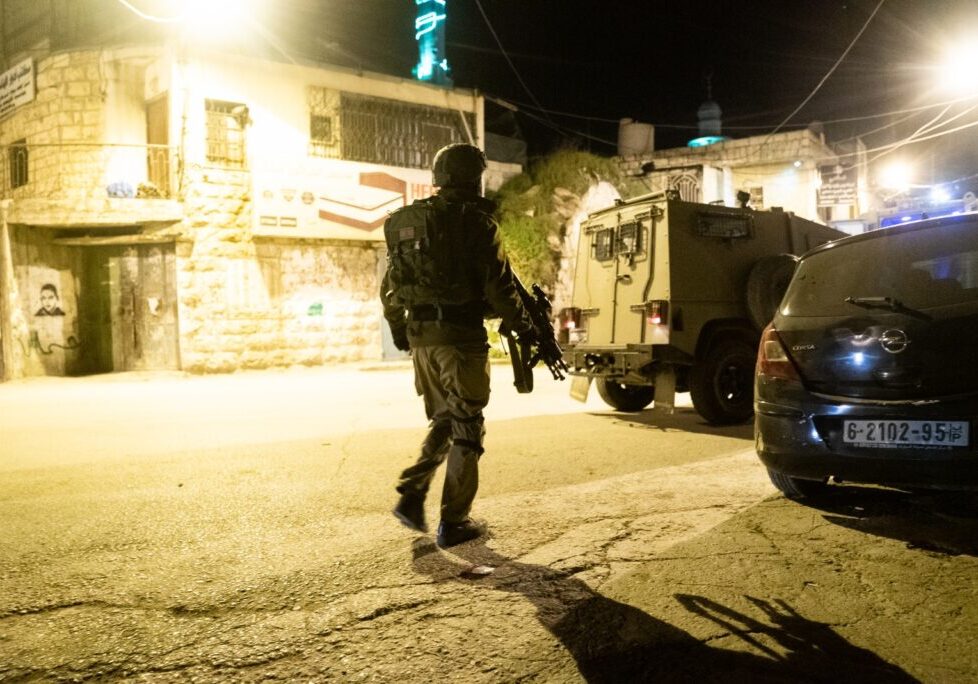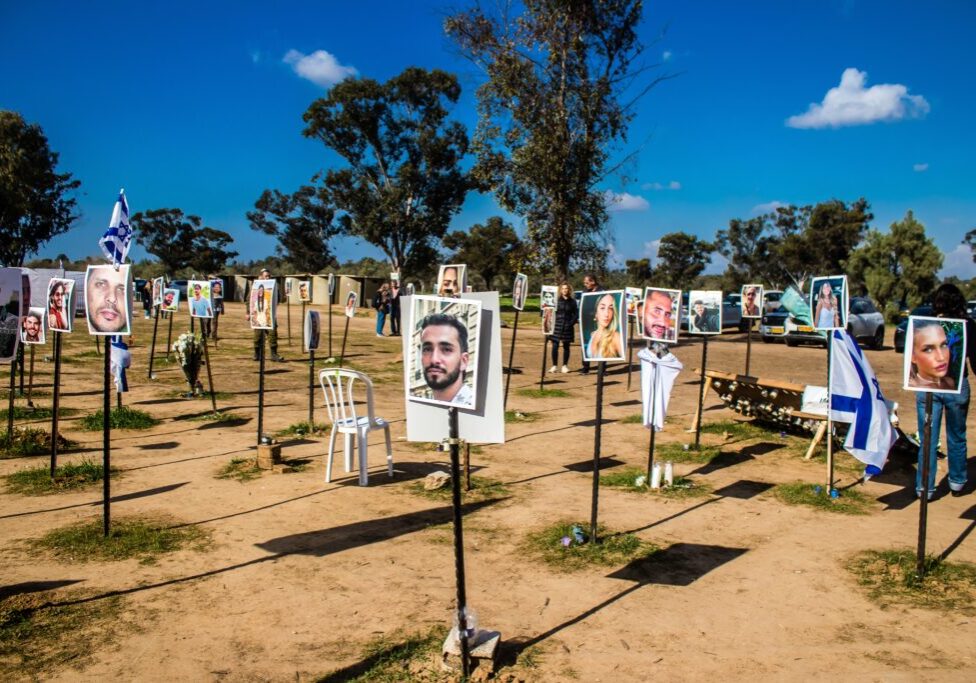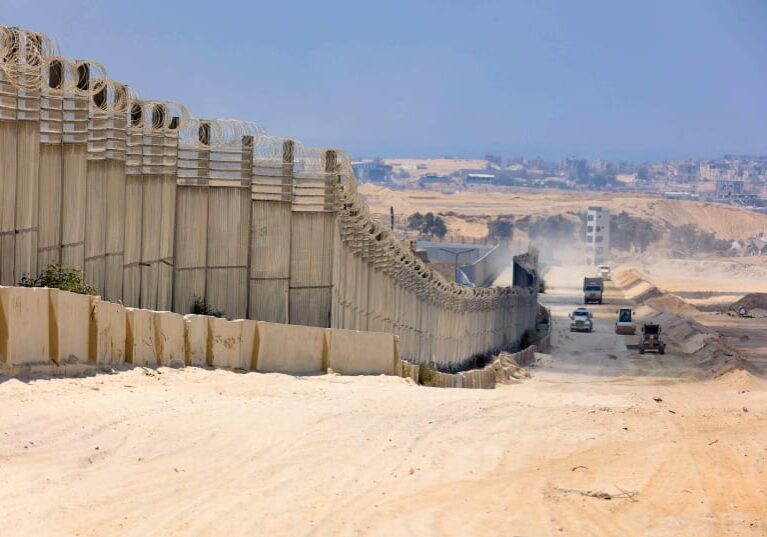Australia/Israel Review
A strategic game changer
Sep 24, 2024 | Ahron Shapiro
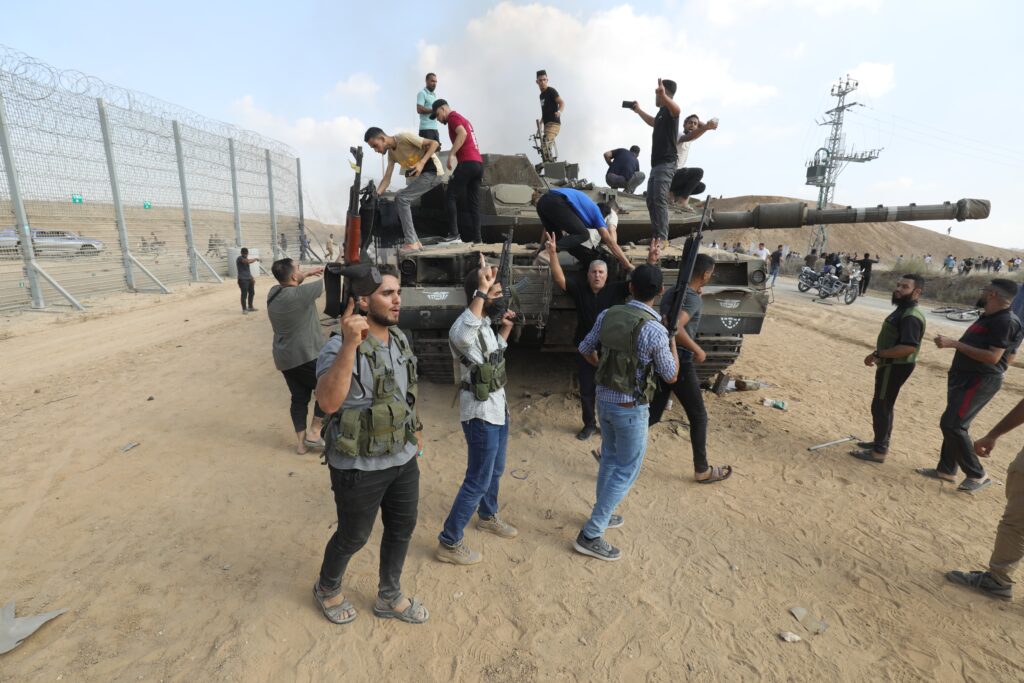
Top Israeli experts weigh in on how Israel’s defence strategy must change post-October 7
On October 6, 2023, the sun set on major elements of Israel’s multifaceted national security concept – often termed in Israel the conceptzia – that had formed the foundation for the state’s defence since its creation.
Certain basic principles had, for at least the past 50 years, provided the basic relative stability that was essential to the Jewish state’s economic growth, regional diplomatic achievements and quality of life.
Washington Institute Fellow Brig. Gen. (Ret.) Assaf Orion wrote recently in Foreign Affairs that “This unwritten security concept was built on three pillars: deterrence, early warning, and decisive victory. (Subsequently added to these were two additional pillars: protection/defence and the imperative of seeking support of a major power.)”
Orion continued: “Deterrence meant using Israel’s formidable record of victories (and enemy defeats) to dissuade any antagonist from attacking the country. Early warning enabled the quick call-up of reserve forces‚ thus allowing Israel’s large pool of citizen-soldiers to continue contributing to the economy and society until mobilised for active duty. On the military level, it also gave the IDF the capability to quickly surge its order of battle. Decisive victory sought to remove any existing threat and further bolster deterrence.”
However, in the past year, Israel’s most potent enemy – the Iran-led axis – has used Israel’s own concepts against it, with some alarmingly effective results.
Hamas’ massacre and hostage-taking spree and temporary occupation of a significant swath of southwestern Israel on October 7 ignited a gruelling war, both on and below ground, in the heavily militarised and tunnel-infested urban landscape of Gaza. Hamas’ surprise attack also led to the activation of an Iranian “ring of fire” surrounding Israel through Iran’s regional proxies. While spearheaded by Lebanon’s Hezbollah – whose rockets and drones have caused the ongoing evacuation of more than 60,000 people from northern Israel – proxy efforts also included attacks by Yemen’s Houthis, Iraq’s Kataib Hezbollah, and others.
Finally, on April 14, Iran brought its shadow war with Israel out into the open, directly attacking Israel with hundreds of long-range ballistic and cruise missiles and drones. Thwarting this attack involved not only Israel’s full range of interception technology, but also the military cooperation of the US and its regional allies.
The new strategic reality with which Israel is faced has catalysed fundamental changes in the way Israel defends itself. This article will look at several of those likely changes, as suggested by some of Israel’s most respected strategic thinkers, a year after October 7 and its aftermath showed the old conceptzia was no longer fit for purpose.
Less reliance on deterrence and intelligence assessments
Brigadier General (Res.) Yossi Kuperwasser, former head of the Research Division in Military Intelligence, discussed Israel’s intelligence failure on October 7 in a radio interview in August.
According to him, “[Intelligence chiefs] were aware of the existence of the threat and ignored it; the concept [that the enemy was deterred] was given precedence over the information [collected by the intelligence agencies], and this has happened more than once.
“Every minute that the ‘concept’ is not disproved makes you believe more and more in the concept,” Kuperwasser continued.
“When new information arrives that should disprove the concept, you are not prepared to discard everything you understood about reality and say that it is incorrect. In our case, there was a dual ‘concept’ – regarding Hamas [as deterred] and regarding ourselves [as prepared] – and thus, even when people came to meetings criticising [these beliefs], they were ignored.
“What is needed is a change in organisational culture, not just a change in personnel,” he concluded.
The harsh lesson from the intelligence failure on October 7 has been widely internalised: Israel’s defence can rely neither on early warning based upon intelligence estimates, nor on deterrence alone – it must be calculated first and foremost based on the enemy’s offensive capabilities at any given moment. In between wars, the IDF must be proactively degrading those enemy capabilities.
This is the key argument of the March 2024 paper “Preventative defence through operational versatility, as a response to the threat of Iran’s religious terror armies,” published by the IDF’s Dado Centre for Interdisciplinary Military Studies.
Co-written by top intelligence and military strategists Col. (Res.) Dr Ofer Guterman, Dr Haim Asa and Col. (Res.) Ran Eisenberg, the paper argues that “The October 7th War reveals the gap in relevance between the Israeli security concept and the threat posed by Iran’s network of religious terrorist armies.”
The strategists propose a capability denial approach, which, in contrast to Israel’s anti-missile defence systems, is not designed to avoid escalation and war, but would rather focus on keeping the threat from the enemy below a tolerable threshold.
The authors explained, “The concept of deterrence is losing relevance [against the Iranian axis], though not entirely. Since these entities hold a dogmatic ideology of destroying Israel and their commitment to state constraints is weak and partial, it is difficult to create a sense of political, diplomatic, economic, or other threat against them. This is true both regarding deterrence against specific offensive initiatives and at the deeper level… it is not correct to assume that these enemies will become disillusioned due to battlefield losses and abandon their desire to destroy the State of Israel.”
Meanwhile, speaking at a March 2024 conference on Israel’s security, Maj. Gen. (res.) Gershon Hacohen, former commander of the IDF’s Ground Forces, pushed for the IDF to go back to basics and not leave the country’s defences reliant on intelligence.
“Defence, by its nature, [should] not [be] dependent on [early] warning,” Hacohen said. “The whole idea is to be able to ensure protection even when there is no warning… It is arrogance to think that we will always have a warning. Therefore, the starting point of the idea of defence says: ‘Prepare for the unknown and the unexpected.’ When the unexpected happens – that’s why you have reserves. [But] on October 7, the IDF had no reserves on the ground.
“After the Yom Kippur War, [the IDF’s largest regular-service armour] Division 36 was on half-hour standby for 20 years,” Hacohen continued.
“Today, due to cost-benefit calculations, the IDF has dismantled the regular divisions into various areas of military tasks. In every event where it was necessary to gather a force larger than a brigade for an offensive mission on the ground, it took three to four days to assemble the force.”
Hacohen also called for better armed and better trained residents in border communities, and the revival of “Nahal” garrisons – units that combined military service with agriculture on Israel’s frontiers.
A Bigger Army
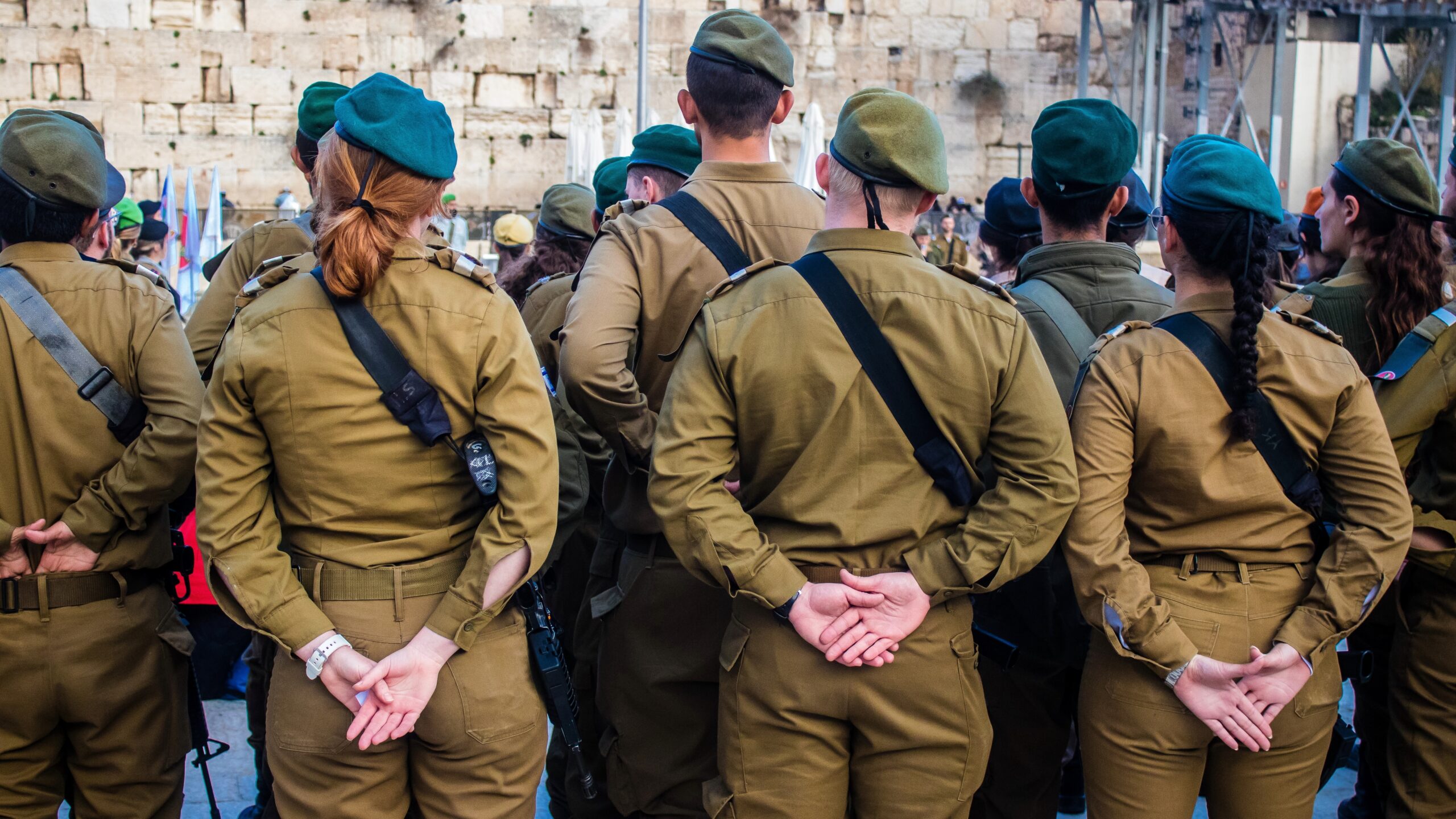
Military experts say the IDF needs at least 15 additional combat battalions if it is to cope with the multi-front threat it currently faces (Image: Jose Hernandez/ Shutterstock)
Despite the vast increase in defence spending such a move would require, likely revisions to the IDF’s defence posture will also necessitate a larger standing army and larger reserve forces.
According to Orion, “Israel’s military leaders say that the IDF needs 15 additional battalions, or about 10,000 soldiers, to be able to address current and pending missions, including the ability to carry out simultaneous offensives on several fronts. As of now, IDF land forces that are deployed in Gaza will be needed in Lebanon if the war expands, and already hard-pressed reservists will be required to shoulder an even heavier burden.”
Meanwhile, the open-ended low-intensity fighting with Hezbollah on the northern front has made it difficult for the war-fatigued IDF to maintain its sharpness in the event of an all-out war with Lebanon. As former Israeli National Security Council head Yaakov Amidror recently commented to the Wall Street Journal, “The longer the time, the more problematic it is to maintain the support and the readiness” of the fighting forces.
On top of all this, the IDF has been stressing the importance of creating some distance between Israel and its enemies to leave more time to detect and react to enemy incursion attempts.
Thus, during its war with Hamas, the IDF Engineering Corps has cleared a 1km buffer strip between Gaza and Israel in anticipation of Israel’s post-war security needs. Likewise, in US-brokered negotiations with Lebanon, Israel is demanding the implementation of UNSC Resolution 1701, which barred Hezbollah from deploying south of the Litani River – about 15 to 25 kilometres inside Lebanon. If such talks fail, it is very likely that the IDF will eventually be called upon to achieve the same outcome through military means.
Lastly, in what is shaping up to become a war of attrition with Iran and its proxies, Orion adds that “Israel can no longer rely on raw military strength alone. It must use all the various tools of national power as well as the help of allies and partners – perhaps even of a coalition of forces” like the one that was used to thwart Iran’s direct attack on Israel in April.
Now, more than ever, Israel will look to its chief ally and patron the United States to project power in the region to deter Iran and provide Israel with the weapons it needs to sustain a long war.
However, Orion says, “in the medium and longer terms, [Israel] will need to significantly [boost] its defense industries” and ability to produce its own ammunition and other key expendables.
The West Bank and the Palestinian Issue
Two months before a Jordanian terrorist killed three Israeli workers at the Allenby Bridge crossing in the Jordan Valley on Sept. 8, veteran journalist and Washington Institute Fellow Ehud Yaari warned in a policy analysis paper that Iran was smuggling weapons and drugs into Jordan en masse. Teheran, he said, hopes to bring Israel’s eastern front in the West Bank and along the Jordanian border into the multi-front war and complete the “ring of fire”. As part of this effort, he noted, Hamas was “flooding the [West Bank] with weapons and money” in order to seed new terror cells, including even cells unaffiliated with Hamas or any other organised terror group.
Meanwhile, an increasing number of attempts at terror attacks, both in the West Bank and Israel itself, in addition to the experience of October 7, has only reinforced the importance most Israelis place on retaining security control in the West Bank and preserving IDF freedom of operation there.
“There is a need to revisit the essential need for territorial depth,” Hacohen wrote in a column for Israel Hayom. “From the early days after the War of Independence, it was agreed within the security system that it is not possible to defend the State of Israel from the narrow coastal strip from Kfar Saba to Highway 6 [which runs along the West Bank border only 15km from the coast – Israel’s narrowest point].
“Given the capabilities of the new war, territorial depth is required many times over. It necessitates Israeli control over the Jordan Valley as the eastern security border and over essential areas in Judea and Samaria,” Hacohen wrote.
Dr Michael Milshtein, head of the Palestinian Studies Forum at the Moshe Dayan Centre for Middle Eastern and African Studies at Tel Aviv University and a long-time proponent of a negotiated political solution with the Palestinians, wrote in his weekly column for Yedioth Ahronoth earlier this year that the widespread support among Palestinians for the attack on October 7 convinced many Israelis that the conflict with the Palestinians is not about “occupation”, but instead based upon a deeper hatred. Moreover, they now have good reason to fear that full Palestinian statehood is likely to lead, not to conflict resolution, but instead to a severe security threat.
“The intense and violent impulses revealed by Palestinians towards Israelis on October 7, and the equally significant lack of criticism and widespread denial in the face of the brutal massacres, and even claims that they did not occur at all, led many Israelis to wonder whether this is truly a result of the occupation and economic disparities, or rather a deep-seated hatred rooted in the collective Palestinian consciousness,” Milshtein wrote.
Milshtein further commented on the contradiction facing Israel vis-a-vis the Palestinians and, while not offering any complete answers as to how to reconcile them, did offer at least some suggestions of where the route forward might lie.
“In Israeli collective consciousness, the war has planted two seemingly contradictory conclusions,” he wrote. “On one hand, the understanding that cultural differences will not allow for stable [Israeli-Palestinian] coexistence within a single entity, that is, in the framework of ‘one state’. On the other hand, the assumption that Palestinian independence poses an existential threat to Israel, as it has been proven that the extensive freedom the Gazans gained after the disengagement from Gaza in 2005 was primarily used to escalate violent struggle rather than for self-development.”
Milshtein continued, “In this framework, it will be required to examine how to advance, on one hand, a broad physical separation between the two communities, but on the other hand, to prevent existential threats embodied in full Palestinian independence. All this, while disengaging from… waiting for the Palestinians, who currently lack leadership with the will or ability to make compromises.”
Israeli social cohesion: A necessity for survival
Finally, one of the great conceptual lessons of October 7 was not directly about defence at all, but how a breakdown in social cohesion can endanger the country, with highly visible Israeli internal divisions inviting war from enemies dedicated to Israel’s destruction.
Dr Micah Goodman, a leading Israeli thinker, wrote in his most recent book, The Eighth Day (published earlier this year), that for Israel today, “cohesion is not an ideal to live for; it is a necessity for survival. Up to October 7, national disputes were perceived and experienced, at least by part of the public, as negative and troubling events. Similar to traffic jams or inflation, they were nuisances that needed to be dealt with but could be lived with. After October 7, the cost of severe internal conflict must be re-evaluated entirely. A national dispute is not like traffic jams or inflation; it is like a devastating earthquake, a deadly epidemic, or an existential war.”
Goodman writes that the “right” and “left” camps that have divided Israeli politics for decades are obsolete relics of the Oslo era and are no longer relevant today, when the prospects for a negotiated two-state peace with the Palestinians is not on the horizon in the foreseeable future.
In reality, he says, most Israelis are in the centre of the political bell curve and could potentially reorganise themselves into the country’s largest political party while marginalising the extremists and strengthening the country if they can only give up the party “brands” they currently identify with but that often no longer represent their values.
“The apocalypse of October 7th calls on Israel to update itself,” Goodman concluded. “The disaster, one of whose major lessons is the need to act with broad agreements, pushes… pragmatic Israelis toward each other, creating an opportunity to free Israel from the political market failure that paralyses it.”

